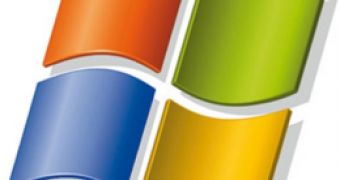The adoption of the Linux open source operating system indicates a strong trend of slowing down to a scratching halt, but this is one scenario that the availability of Windows Vista failed to catalyze and to even impact, for that matter. The reason is simple and it involves the server, rather than the client side distributions of Linux. According to a research put together by investment firm UBS, the current healthy uptake rate Linux is enjoying in corporate environments will slow down in the coming year.
In excess of 90% of the participants in the "CIO Pulse" quarterly survey, responded negative when it came down to adopting the open source operating system in the following 12 months. The same percentage has not to this point deployed Linux across their server infrastructure. The USB survey indicates a strong growth in the volume of businesses saying no to Linux. In the last poll from January of this year, USB indicated that only 87% of respondents had no plans to adopt Linux and the percentage was significantly up from 60% at the end of 2006.
The fact of the matter is that on the server side there are four rival solutions available: Windows, Linux, UNIX and Mainframe. Windows is the dominant server operating system with a market share of 80%, UNIX is the runner-up with 13% and Linux is third with 8%. But while accounting for the lion's share of the market, Microsoft is also closing on the date it will launch Windows Server 2008. "We believe it should be expected that Linux operating system growth will slow from the significant growth rates of the past few years," UBS analyst Heather Bellini, concluded as cited by InformationWeek.
And in this sense, the Redmond company has already begun laying out the ground for the availability of Windows Server 2008. Microsoft recently introduced the Windows Server Compare website, a resource designed to contrast Windows server solutions to Linux, UNIX and Mainframe alternatives.
"First, we're continuing to work extremely hard every day to provide the best value for customers with Windows Server over the alternatives. Simply put, we believe that Windows Server provides greater business value and lower long-term costs for customers than competing platforms, including Linux. We always want Windows Server to be the operating system of choice. Second, we understand many of our customers operate in mixed environments. In the enterprise in particular, heterogeneous environments are a de facto standard, so we are committed to working together with our customers, partners and the industry to provide solutions that meet customer needs via interoperability. Third, it's important to clarify that we don't compete with OSS per se, but with some products or technologies that may come out of open source," revealed Ryan Gavin, director of Platform Strategy at Microsoft.

 14 DAY TRIAL //
14 DAY TRIAL //